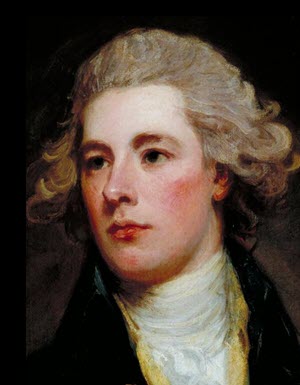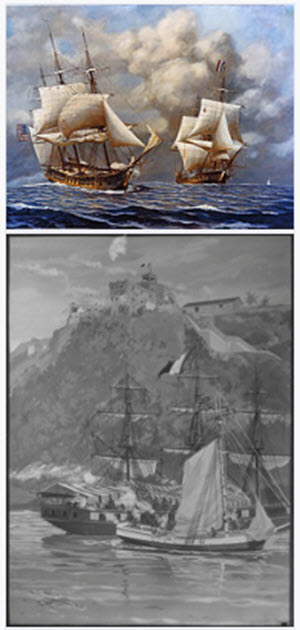| |
Date |
Event(s) |
| 1 | 1760 | - 25 Oct 1760—29 Jan 1820: King George III's reign

George III was the third British monarch of the House of Hanover, but unlike his two predecessors, he was born in Great Britain, spoke English as his first language, and never visited Hanover. His reign was marked by a series of military conflicts involving his kingdoms, much of the rest of Europe, and places farther afield. Early in his reign, Great Britain defeated France in the Seven Years' War, becoming the dominant European power in North America and India. However, many of Britain's American colonies were soon lost in the American War of Independence. Further wars against revolutionary and Napoleonic France from 1793 concluded in the defeat of Napoleon at the Battle of Waterloo in 1815.
Later in life, George III had recurrent mental illness. After a final relapse in 1810, a regency was established, and George III's eldest son, George, Prince of Wales, ruled as Prince Regent.
|
| 2 | 1783 | - 19 Dec 1783—14 Mar 1801: William Pitt the Younger - 16th British Prime Minister

William Pitt the Younger (28 May 1759 – 23 January 1806) was a prominent British Tory statesman of the late 18th and early 19th centuries. He became the youngest British prime minister in 1783 at the age of 24. He left office in 1801, but was Prime Minister again from 1804 until his death in 1806. He is known as "the Younger" to distinguish him from his father, William Pitt, 1st Earl of Chatham, called William Pitt the Elder or simply "Chatham", who had previously served as Prime Minister.
The younger Pitt's prime ministerial tenure, which came during the reign of George III, was dominated by major events in Europe, including the French Revolution and the Napoleonic Wars. Pitt, although often referred to as a Tory, or "new Tory", called himself an "independent Whig" and was generally opposed to the development of a strict partisan political system. He led Britain in the great wars against France and Napoleon. Pitt was an outstanding administrator who worked for efficiency and reform, bringing in a new generation of outstanding administrators.
|
| 3 | 1798 | - 7 Jul 1798—30 Sep 1800: Franco-American War

The Franco-American War more properly known as The Quasi-War was an undeclared war fought almost entirely at sea between the United States and France from 1798 to 1800 which broke-out during the beginning of John Adams' presidency.
After the French crown was overturned during the French Revolutionary Wars, the United States refused to continue repaying its large debt to France, which had supported it during its own revolution. It claimed that the debt had been owed to a previous regime. France was also outraged over the Jay Treaty and that the United States was actively trading with Britain, with whom they were at war. In response France authorized privateers to conduct attacks on American shipping, seizing numerous merchant ships, and ultimately leading the U.S. to retaliate.
|


